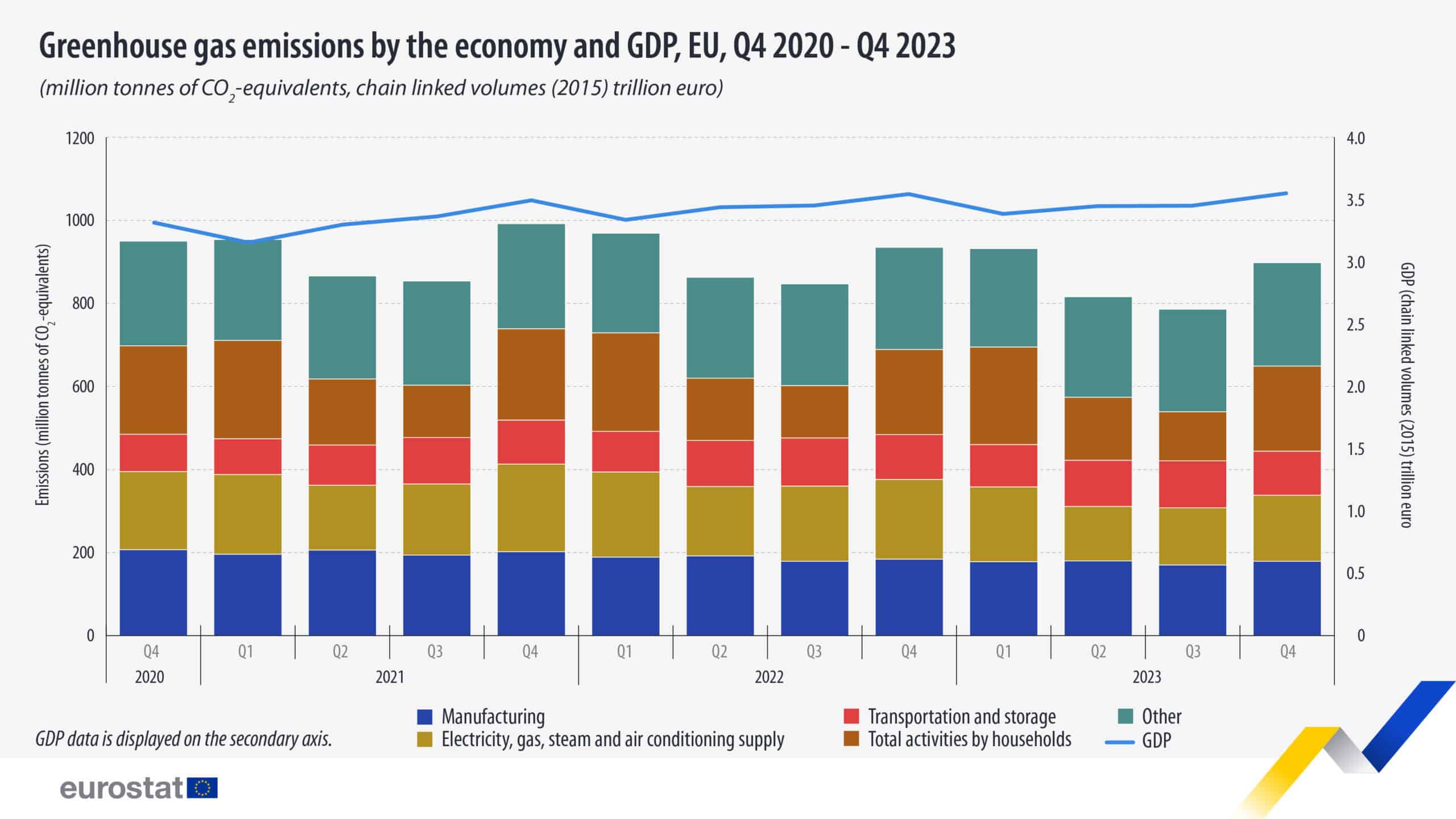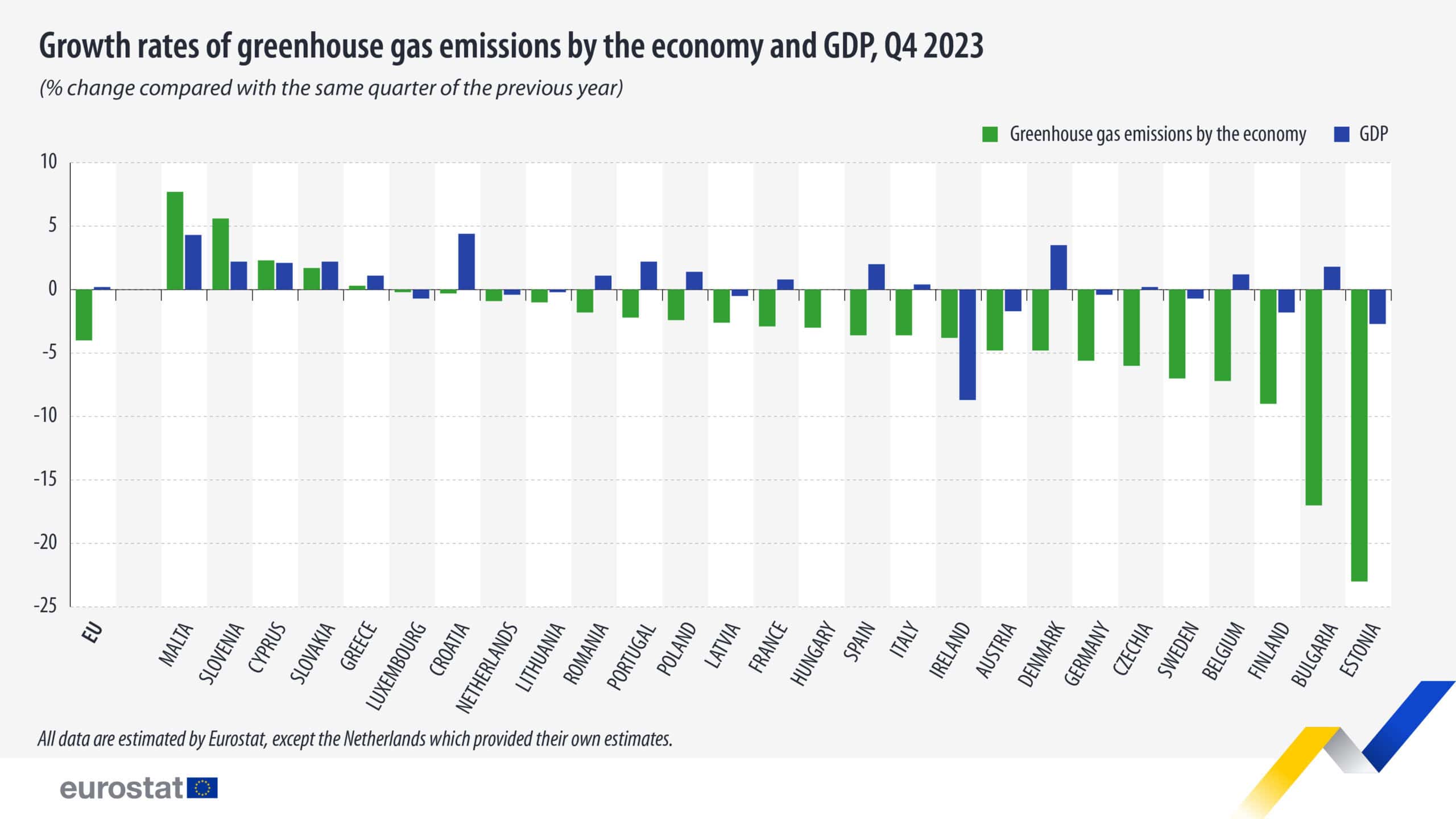Amidst a notable 4.0% reduction in greenhouse gas emissions across the European Union in the fourth quarter of 2023, Greece experienced a modest 0.3% increase in emissions, according to recent data released by Eurostat.
While the EU as a whole saw emissions drop to 897 million tonnes of CO2-equivalents (CO2-eq), down from 935 million tonnes in the same period of 2022, Greece's emissions edged upwards, marking a deviation from the regional trend.
Eurostat's quarterly estimates provide valuable insights into the environmental performance of EU member states, with Greece's slight increase in emissions bucking the overall downward trajectory observed in 22 other countries. Notably, sectors such as electricity and gas supply contributed significantly to emission reductions across the EU, with decreases of 17.2% and 3.1% respectively. However, emissions from Greek households remained relatively stable during this period.
 While several EU nations managed to simultaneously decrease emissions and record GDP growth, Greece's emissions uptick coincided with a 1.1% increase in GDP, underscoring potential challenges in balancing economic expansion with environmental sustainability. Despite this, Greece's GDP growth remained modest compared to other countries experiencing both economic and environmental gains.
While several EU nations managed to simultaneously decrease emissions and record GDP growth, Greece's emissions uptick coincided with a 1.1% increase in GDP, underscoring potential challenges in balancing economic expansion with environmental sustainability. Despite this, Greece's GDP growth remained modest compared to other countries experiencing both economic and environmental gains.
 The data also revealed that while Greece's emissions saw a marginal rise, other countries like Malta, Slovenia, Cyprus, and Slovakia experienced more significant increases in emissions ranging from 0.3% to 7.7%. Despite these emissions spikes, these nations also recorded positive GDP growth rates, indicating complex dynamics between economic activity and environmental impact.
The data also revealed that while Greece's emissions saw a marginal rise, other countries like Malta, Slovenia, Cyprus, and Slovakia experienced more significant increases in emissions ranging from 0.3% to 7.7%. Despite these emissions spikes, these nations also recorded positive GDP growth rates, indicating complex dynamics between economic activity and environmental impact.
(Source: Eurostat)

